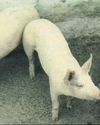Cotton production in North West can be extremely lucrative, according to Arno Janse van Vuuren, manager of agricultural management at agribusiness NWK. A comprehensive survey by the company shows that the province is well suited to cotton cultivation if production is managed effectively.

Cotton has been used as a fibre for more than 7 000 years. Unlike fossil-based fibres, it is sustainable, renewable, biodegradable and carbon neutral.
“It can be used without depleting or damaging the environment, making it an excellent choice as an environmentally friendly fibre throughout its entire product life cycle,” says Arno Janse van Vuuren, agribusiness NWK’s manager of agricultural management.
NWK recently conducted a survey to determine the potential for cotton production and expansion in the company’s service area, which includes Lichtenburg and Mahikeng in North West. The main production regions in the province include Stella, Delareyville and SchweizerReneke, which together produced 17 832 lint bales (200kg each) of the provincial crop of 23 299 bales in the past season. Cotton (Gossypium hirsutum) is a tropical crop and as such prefers summer temperatures of 25°C or higher, and soil temperatures that stay above 18°C during germination. As most of the world’s cotton is produced outside of the tropics, cotton-growing areas have to be warm enough to ensure a good crop. Cotton is generally not produced in areas higher than 1 400m above sea level.
The plant is hardy and resilient to drought.
COTTON IN FIGURES
According to the International Cotton Advisory Committee (ICAC), global production of the crop in the 2017/2018 season was 26,9 million tons, a 16% increase on the previous season. The major producers, which together were responsible for 90% of global cotton output, were India, China, Turkey and Uzbekistan.
Global demand increased 8% to 26,9 million tons in the 2017/2018 season. The committee has forecast a 4% fall in production to 26 million tons in the 2018/2019 season. Production is expected to decline 2% in India, the world’s largest producer, due to pink bollworm infestation.
Esta historia es de la edición November 16, 2018 de Farmer's Weekly.
Comience su prueba gratuita de Magzter GOLD de 7 días para acceder a miles de historias premium seleccionadas y a más de 9,000 revistas y periódicos.
Ya eres suscriptor ? Conectar
Esta historia es de la edición November 16, 2018 de Farmer's Weekly.
Comience su prueba gratuita de Magzter GOLD de 7 días para acceder a miles de historias premium seleccionadas y a más de 9,000 revistas y periódicos.
Ya eres suscriptor? Conectar

Improving efficiencies in feed and grain milling
Bühler, a Swiss-based company that provides solutions and equipment for various industries, including food and animal feed processing, has pledged that by 2025, it will deliver scalable solutions that will reduce energy, waste and water by 50% in the value chains of its customers.

Tips for better olive production
At an SA Olive Association field day in November, industry experts shared ways to improve olive production efficiencies, from soil preparation to harvesting.

More effort needed to protect vulnerable cheetah
On International Cheetah Day, commemorated every year on 4 December, emphasis was placed on the vulnerability of the species.

Global agriculture: news that made the headlines
Farmer protests, droughts and floods dominated international agricultural news throughout 2024. Here, Janine Ryan gives an overview of these challenges.

Something to scratch a head about
This article showed that if you interact with your pigs, your sows will be happy and their piglets will have better growth.

ARC names best dairy producers of the year
The Agricultural Research Council (ARC) recently announced the winners of the 2024 National Master Dairyman Awards at an event hosted by AgriExpo in Stellenbosch, Western Cape.

Lion breeders to give up bone stockpiles?
The Ministry of Forestry, Fisheries and the Environment issued an official notice in mid-November in which it called on lion breeders to voluntarily hand over their lion bone stockpiles to the state as soon as possible.

Thousands of British farmers march on parliament against inheritance tax
Thousands of UK farmers gathered in London, England, on 19 November to demand the government repeal a proposed inheritance tax on agricultural land, which they argued threatened the future of family-run farms (see page 4), Al Jazeera reported.

Feed, hay, and other costs are up, so it's time to get creative
Breeders and riding schools need to explore innovative ways to generate income in order to ensure their survival, says Dr Mac.

How to make polystyrene seedling trays last longer
While thinking about how to prolong the lifespan of polystyrene seedling trays that are exposed to harsh sunlight, Bill Kerr began to wonder if a coat of paint might offer a solution.